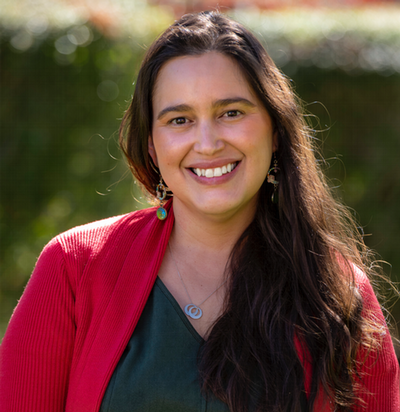Dr. Nahir Otaño Gracia
Assistant Professor, Department of English

- Email:
- nahir@unm.edu
- Curriculum vitae
Dr. Nahir Otaño Gracia is an Assistant Professor of English. Her theoretical frameworks include translation theory and practice, Critical Identity Studies, and the Global North Atlantic—extending the North Atlantic into the Mediterranean. She has published a number of articles on literature from the Global North Atlantic, including “Towards a Decentered Global North Atlantic” winner of the MAA’s article prize in Critical Race Studies (Literature Compass 2019); “Gawain, Race, and the Borders in The Turke and Sir Gawain” (Exemplaria 2022); “Presenting Kin(g)ship in Medieval Irish Literature” (Enarratio 2018); and “Vikings of the Round Table” (Comitatus 2016). Her coedited volume of essays, Women’s Lives: Self-Representation, Reception, and Appropriation in the Middle Ages, was published in 2022, and her monograph The Other Faces of Arthur: Chivalric Whiteness in the Global North Atlantic will be published by Penn Press in 2025.
Nahir teaches courses that focus on differing aspects of the Global Middles Ages and Premodern Critical Identity Studies such as Early World Literature: On Hate and Restorative Justice, which uses the concept of restorative justice as a tool for literary analysis; Medieval Romance and Race; Global North / South Connections; and Celtic/Global Otherworlds. These courses tend to cluster canonical works of literature, transgressive literature by women of color, and materials from popular culture that students already know and welcome in order to help students decenter, dismantle, and recreate the canon.
Nahir is also an activist medievalist working to create a more inclusive medieval studies. The cowritten article “Constructing Prejudice in the Middle Ages and the Repercussions of Racism Today” appeared in Medieval Feminist Forum’s special issue on Microaggressions, Harassment, and Abuse—Medieval and Modern and her essays “On hidden scars and the passive voice,” (Ecocide) and “A Critical Subjective Analysis of Objectivity,” (Feeding the Elephant), among others discuss the ways that medieval studies and academia at large have begun to diversify and the ways it has fallen short.
